Doc Corner: A Russian Master Returns at MIFF Plus Frank Zappa and More
 Tuesday, August 9, 2016 at 11:00AM
Tuesday, August 9, 2016 at 11:00AM Glenn here. Each Tuesday reviews n documentaries from theatres, festivals, and on demand. This week four more from MIFF following last week's round-up.
The Event
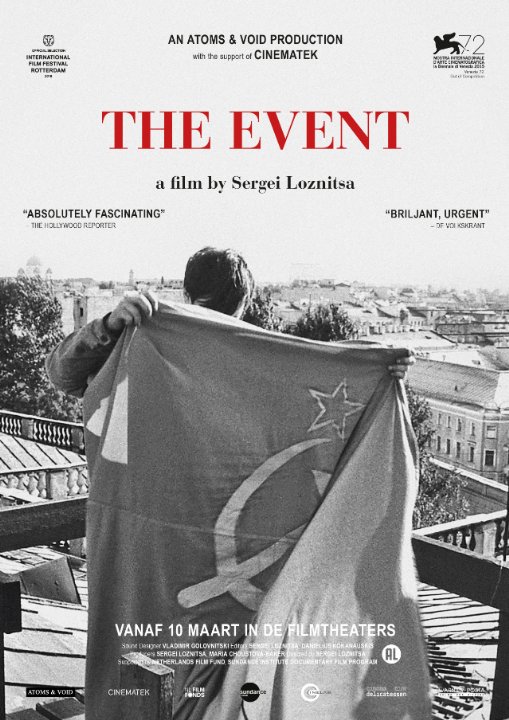 One of Russian/Ukrainian cinema’s contemporary masters, Sergei Loznitsa, has a career that has successfully juggles both documentary traditional narrative cinema. His latest is The Event, a rather exceptional example of the artform that at just 74 minutes long nonetheless has the aura of an epic. Utilizing only black and white 35mm archival footage recorded in Leningrad (now St. Petersburg) over the three days of the attempted coup d’etat that failed and eventually brought about the end of the U.S.S.R., The Event is a key reminder that for many in the world dictatorships, revolutions, and social revolt are issues of genuine life and death and not just something to tweet about online.
One of Russian/Ukrainian cinema’s contemporary masters, Sergei Loznitsa, has a career that has successfully juggles both documentary traditional narrative cinema. His latest is The Event, a rather exceptional example of the artform that at just 74 minutes long nonetheless has the aura of an epic. Utilizing only black and white 35mm archival footage recorded in Leningrad (now St. Petersburg) over the three days of the attempted coup d’etat that failed and eventually brought about the end of the U.S.S.R., The Event is a key reminder that for many in the world dictatorships, revolutions, and social revolt are issues of genuine life and death and not just something to tweet about online.
The found footage is of a remarkable quality, having been stored away for decades seemingly never to be seen since. While the images shown are filmed far away from the crisis happening in Moscow, they are still nonetheless fascinating to watch. This isn’t a film of violent confrontations like Loznitsa’s Maidan, rather it is one of bewilderment. A sea of faces descending on the public spaces of Leningrad to hear speeches, huddle around transistor radios, and read mass-distributed pamphlets that breed fear. Some of them are concerned, but many of them look simply nonplussed. Still, on screen they are rivetting. In the film’s best scene, a massive crowd stands in silence their hands in the air with peace signs, while in another a Soviet flag is drawn down over Parliament and replaced by the imperial tri-color one that flies still today albeit its colors faded by the black and white, a likely powerful statement by the Ukrainian-born Loznitsa to suggest in hindsight that just because one horror might be ending, doesn't mean another won't follow. Of course, they’re just two moments of many that make The Event a special film and with an occasional musical score courtesy of Tchaikovsky’s “Swan Lake”, a rousing and powerfully cinematic one, too.
An Australian gem, Frank Zappa, and lost videogames after the jump...
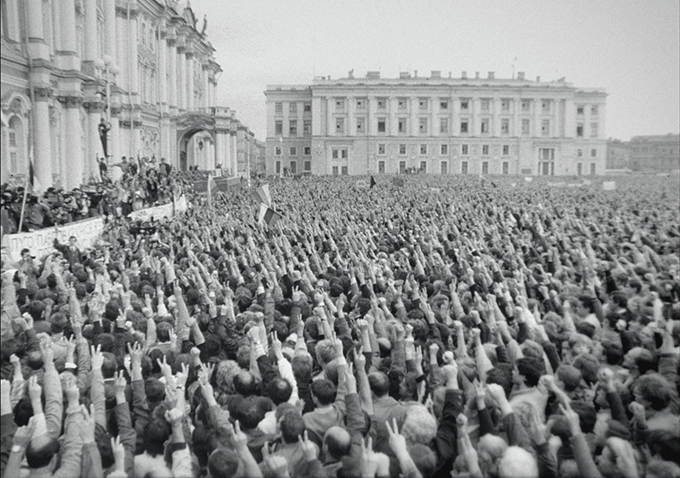
Release: Has been making festival circuit since its Venice premiere last year, although I would hope the critical reception would help it find theatrical/VOD distribution.
Oscar Chances: Despite the success of Amy last year, the doc branch rarely goes for those made entirely out of archival footage. I can only hope that last year's Winter on Fire kicked off interest in the region.
Winter at Westbeth
Documentaries about New York senior citizen artists is a particularly narrow niche for a filmmaker to excel in, but Australian filmmaker Rohan Spong has struck gold twice mining this territory and after the success of other similar titles like Bill Cunningham, New York and Iris, it’s a wonder how nobody thought to mine this world that much before (Grey Gardens influencing us to this day!). Following the success of All the Way Through Evening in 2011 about one woman’s annual concert to perform the works of composers who died of AIDS in her East Village neighbourhood, Spong’s latest film is the utterly divine Winter at Westbeth, which follows three aging artists who reside in the affordable housing complex of Westbeth in the West Village.
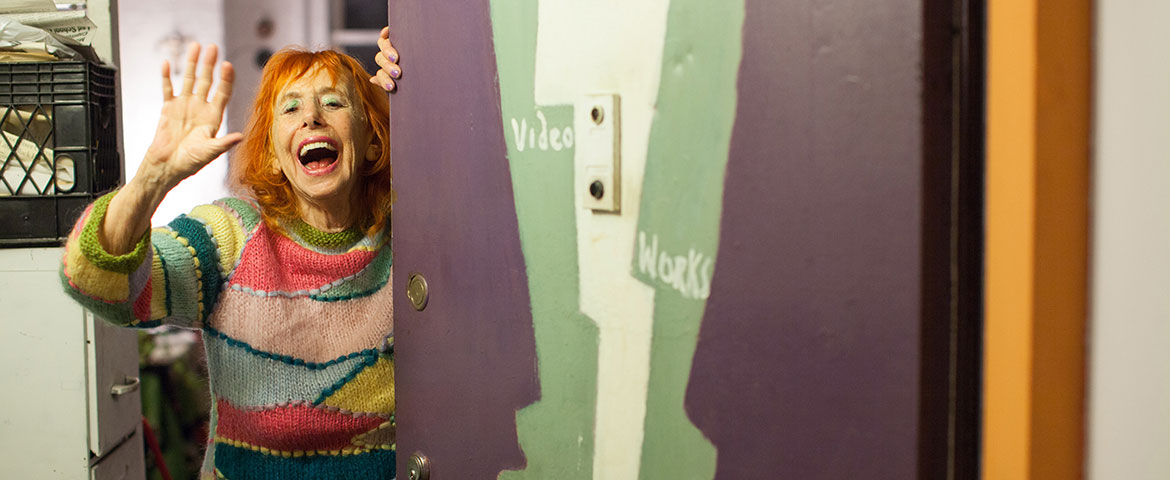
Among them is dancer-turned-filmmaker Edith Stephen whose wild flamed hair perfectly encapsulates her spirit at age 95, the 81-year-old lesbian poet Ilsa Gilbert, and 75-year-old influential African American dancer Dudley Williams. What struck me most about Westbeth was vivid colors, which thanks to Spong also having taken on the role of cinematographer are wonderfully captured whether it is a parade of painted doors or the fashions and the styles found within this self-contained universe. Winter at Westbeth is a true delight of a film, a charming glimpse into a world that proves there is worth in artistry and may just give the struggling writers, painters, dancers, performers, and creatives of the world a glimmer of hope. Spong allows his camera to observe his subjects doing what they do best – like the film’s best scene wherein Ilsa recites verse about her breast cancer that ends the only way possible, with a "my goodness!" from her audience – and when armed with minimal, yet striking, archival footage allows for a potent work of filmmaking. It is a treasure, and considering the names that have (some who still do) roam the halls of Westbeth, there are surely many more wonderful stories to be a told.
Release: No US distributor yet, but I can't imagine this very NY story won't excite one. Or at least local festivals.
Eat That Question: Frank Zappa in His Own Words
How do you make a film about a person in their own words through the use of archival interviews when the man in question considers interviews to be inherently false? And why do it if they don’t put any stock in even being remembered? Frank Zappa was impossible to pigeonhole and so it’s only natural that any film about him would be a bit rough around the edges when it comes to trying to present his life. Director Thorsten Schutte sure does give it a red hot go, however, in Eat That Question, which collates a lifetime of interview and life footage – much of it awash in the sheen of VHS and video tape – to present at least one concept of who Zappa was as a man and an artist.
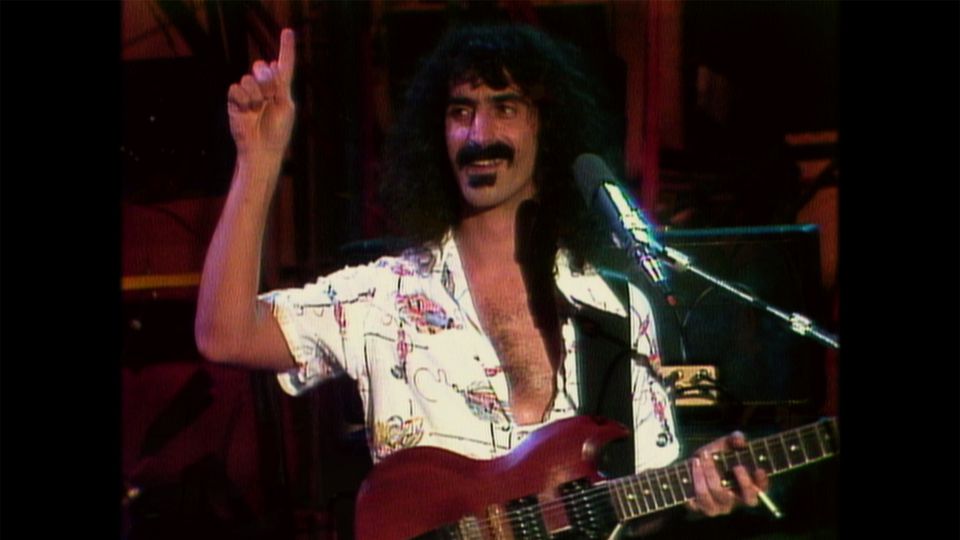
The film, as many documentaries about famous personalities do, has to balance the tricky desire to play to the fans while also acting in service as an introduction to newcomers. Schutte mostly succeeds, but as the movie is made in collaboration with the Zappa estate, it’s easy to question whether Eat That Question is objective or not. Even more so than the usual celebrity tribute doc. What might a more investigative director have produced. What stories are there to unveil with the words of others? Frank Zappa was so indefinable and with so many life tangents that it’s probably impossible to make a film that is completely representative of the man, but Eat That Question does at least have the alternative punkish spirit to feel definitive even if so much is clearly left unsaid. And at least it's never boring, which would have been the biggest crime of all for a man such as Zappa. Whatever the case may be, this is an enjoyable excursion for fans and adventurous music lovers alike with some great clips from the vault. Sure, I would have lived more about “Valley Girl”, but we can’t win everything.
Release: Currently winding down its theatrical release. Sure to be a hit on VOD.
Oscar Chances: Zappa seems a little bit out of their wheelhouse - and, again, there is the entirely-made-of-archive-footage thing - but I reckon critics groups could give it some attention.
The Lost Arcade
The videogame arcades that dotted the pop culture landscape of the 1980s and 1990s are given an affectionate if somewhat light ode in Kurt Vincent’s The Lost Arcade. Choosing to focus on just one – Chinatown Fair, downtown from the lights and the buzz of the more popular Times Square arcade scene of the era – as it goes through its own final days, only to be reborn with a decidedly less authentic corporate vision, is a keen way of zeroing in on the reason why the arcade scene meant so much to so many people. And still does.
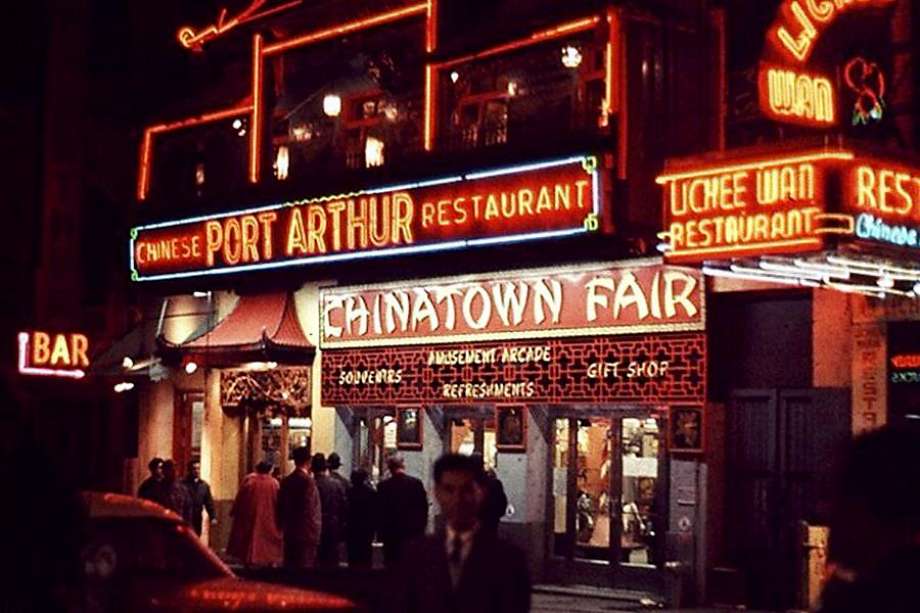
And yet, because of this, the documentary doesn’t utilize enough of the rich textural history (including Meryl Streep and Robert DeNiro in Falling in Love) that that it's legacy is based on. Nicely photographed and with a fun musical score, The Lost Arcade is 80 minutes of perfectly fine filmmaking, but it rarely soars and it feels like there are still stories to be told.
Release: A New York release on August 12 followed by VOD in September.
Oscar chances: Unlikely.



Reader Comments (2)
I've seen Loznitsa's In The Fog and it's a masterpiece. I hope he's as good with docs as he is with fiction.
Cal, I prefer My Joy to In the Fog (however slightly), but I'd suggest he's even better at docs.